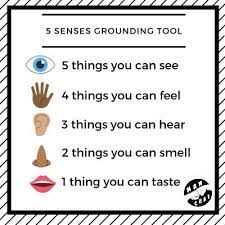- Are you going through a breakup or end of a relationship?
- Do you want to move on from an ex and get on with the rest of your life?
- Ever wonder how to get over an ex you still love?
Love can truly be amazing! Relationships can bring out the best in each partner and can be a wonderful experience. However, when relationships turn sour, it can be very stressful to deal with. Some problems can resolve, and the couple will strengthen their bond, while others can be fatal to the union. Now your relationship turned into a breakup, and you’re wondering how to move on from an ex! This article will help you find ways to cope with your breakup and make peace with your situation in order to move on.

Should I Move On From An Ex Or Should I Wait?
Take yourself back to the time you were in the relationship. How do you think the relationship was overall? When is it time to break up? Your relationship may have been toxic. You and your partner fought all the time, had trust issues, jealousy problems, etc. The honeymoon phases soon turned into a nightmare sequence, and it felt like a battle every day for you two to get along or not fight.
On the other hand, you may actually look back with fondness on your relationship. Not all people break up because the relationship was toxic – sometimes you may love the person, but it just doesn’t work out. These situations can sometimes feel harder to get over. When you leave a toxic situation you mostly feel relieved and happy you don’t have to deal with the unhealthy relationship anymore. But what if the situation wasn’t unhealthy? What if you both cared for one another, but life got in the way of your plans?
What are the signs you should move on?
- Your partner has moved on and started a new relationship;
- You have been trying to get them back for a long time and it didn’t work;
- Your partner has been distant and does not want to communicate with you;
- You are only remembering the good times and choosing to ignore the reason why you broke up;
- Being in a relationship seems to be your goal, rather than being in a healthy relationship with the right person.
Moving-on May Take Some Time
Any journey you take has its own timeline to follow. Healing can take time, and you may not be over your ex for longer than you’d like – and that is okay! You need to give yourself time to move on from your ex and let go of the relationship you once had. Each relationship contains its own dreams and ideals that went into it – you may have thought you were going to marry or start a life with your past partner.
With this being said, you might need time to grieve the loss of the relationship you once believed in.

How To Move On From An Ex?
1. Allow Yourself Time To Grieve
As mentioned before, grieving may need to occur for you to move on from an ex. In times of major loss in life, Psychiatrist Elisabeth Kübler-Ross says that people go through 5 stages of grief. These stages are denial, anger, bargaining, depression, and acceptance. You may be able to relate to some or all of these stages of grieving your relationship.
You may have:
- Denial over the relationship ending, your partner leaving, or the fact that you are not going to get back together.
- Anger over unresolved issues or lack of closure. Your partner might have broken your trust or let you down, and you feel upset about this betrayal. You may feel like your partner gave up and didn’t fight as hard as you – this all makes you mad!
- Tried bargaining – you try to convince your ex you should get back together or pray to a higher power to help your relationship find its way to healing.
- Depression over the sadness that comes with a breakup. Breaking up can be emotionally and physically draining. You may stay up night because you keep crying. You now are losing sleep and feeling sad/ fatigued constantly.
2. Accept That the Breakup Happened
The final stage of grief is acceptance. After you g through the motions of the grieving process, you will eventually find your way to accepting of what has happened. As mentioned before, this process may take time so don’t beat yourself up if you struggle or fall back into old habits or stages.
When you finally can accept the breakup and that you shouldn’t get back together, moving on will happen more easily.
3. Identify the Main Issues
The relationship you may have had some wonderful times. You and your partner may have made many great memories together. However, don’t be fully blinded by the good times – there has to be some reason that you and your partner didn’t work out. Check out our other article about what makes a healthy relationship – if your relationship was not like anything mentioned in the article, it is better that you both split.
Identify these issues. If you have to, write them down in a list or journal to remember them. Remembering the reasons why you ultimately didn’t work out with this person can help you see that this relationship was not meant to be and move on.

4. Detach, Disconnect, and Detox
When in doubt, follow the DDD method. First, detach from this person. It can be challenging to move on from someone you constantly are with or see. In this case, put space between the two of you and distance yourselves – this space will give you time to remember and get back to how life was like without this person. This detachment can take place literally and/or a virtually – aka unfollowing or muting the person’s accounts.
There are sometimes when it is hard to get space from someone, even after a breakup. This problem can be due to having the same friend group or even having to co-parent children you share. In these scenarios, try your best to set healthy boundaries between you and this person to disconnect.
Detoxing this person from your life means getting rid of the things that may remind you of them. You may be a sentimental person who likes to hold on to things that have meaning. If you can do so in a healthy way, that is great! However, other people may struggle to do the same. A t-shirt or promise ring may make them feel sad every time they look at the object. In these cases, detox the stuff from your life. Give your ex back their things, donate the stuff to charity, or just throw it out! Do what feels right for you!
5. Lean on Support
In times when we struggle, it is important to lean on our support systems. If you are struggling with learning how to move on from an ex, go to the people around you who love you. Ask them for advice and if you can vent any worries, frustrations, or concerns to them. You never need to suffer alone, and you deserve to be comforted in difficult times!

6. Take Time To Focus on Yourself and Heal
Many times, especially in all-consuming relationships, people can lose who they once were. After a breakup, the person may not even recognize themselves or remember who they really are. Get back in touch with your inner, truest self. Start doing things you like again, following your passions, and enjoying your company. Take time to see who you are and even explore new parts of you that you didn’t even realize were there!
The era after a breakup is a great time to work on bettering yourself. Practice self-care and prioritize your needs. Be patient with yourself and have self-compassion in times when you stumble or mess up (we all might do silly things after a breakup). Many times after a breakup, someone’s self-esteem lessened. Work on building yourself back up – remind yourself of how great you are and what you deserve in life!
Also, take time to look back on the relationship and see what you can learn from it all. Identify what changes you can make moving forward or how you want your future relationships to go. When you feel ready, try opening yourself up to dating again and seeing what else is out there. Keep in mind, you don’t need to date again until you are fully ready to do so – in the meantime focus on prioritizing your healing journey.
7. Talk to a Therapist or Counselor
If you are struggling to move on from an ex, it is okay to reach out for support! Talking to a therapist can help you with any symptoms of depression or anxiety you are feeling over the split. A therapist can help you talk about your emotions with someone who understands and wants to help you, learn to cope with stressors, and start feeling like yourself again. Also, if you need help restoring your self-esteem, a therapist can help you gain back confidence back into your life. Call to set up a consultation today!


![Burnout in Healthcare Workers: Prevalence, Impact and Preventative Strategies - Scientific Figure on ResearchGate. Available from: https://www.researchgate.net/figure/Simplified-5-stage-model-for-the-development-of-burnout-which-is-most-frequently-used_fig3_346432309 [accessed 22 Apr, 2022]](https://drjunhongcao.com/wp-content/uploads/2022/04/Simplified-5-stage-model-for-the-development-of-burnout-which-is-most-frequently-used-768x342.png)















 As mentioned before, if Sunday Scaries stems from perceived threat, then you can learn to manage this anxiety better by changing such perceptions. This involves taking steps to actively clear your mind first. This requires you to ask yourself some questions, such as,
As mentioned before, if Sunday Scaries stems from perceived threat, then you can learn to manage this anxiety better by changing such perceptions. This involves taking steps to actively clear your mind first. This requires you to ask yourself some questions, such as, 










